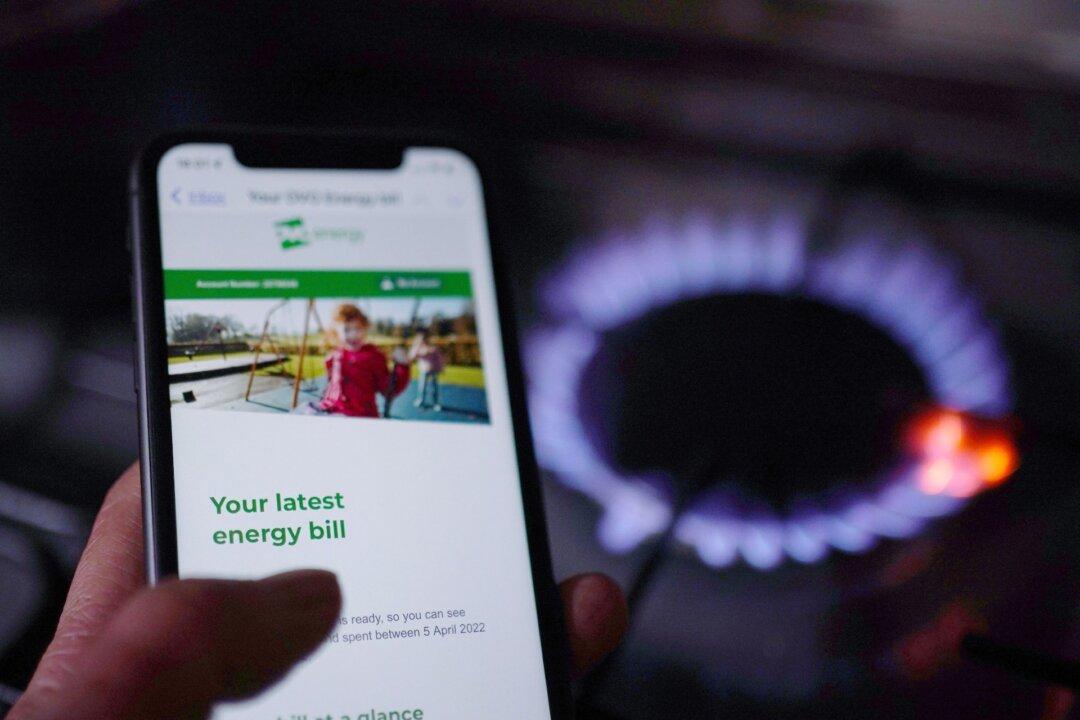Nearly half of UK adults are finding it hard to pay their energy bills, new figures suggest.
According to the Office for National Statistics (ONS), 48 percent of British adults surveyed between Aug. 31 and Sept. 11 said they were finding it “very or somewhat difficult” to afford their energy costs.





